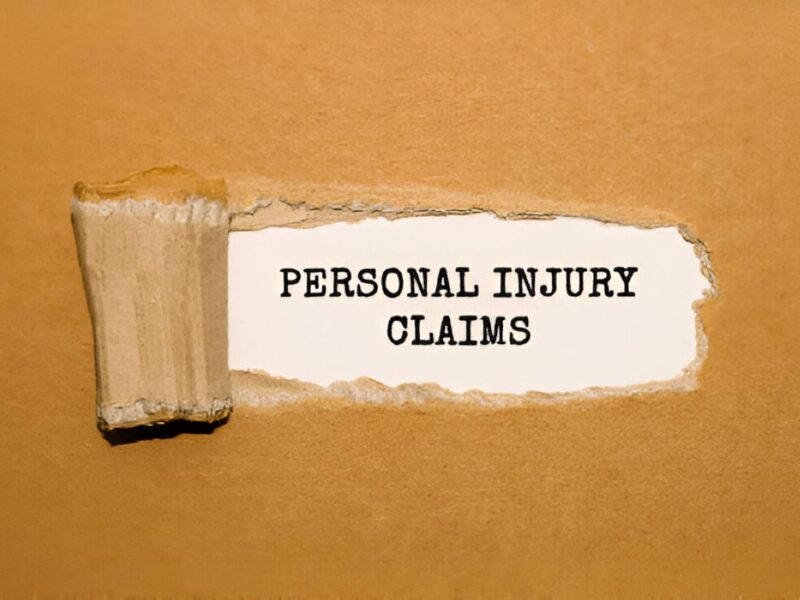Getting hurt in an accident feels overwhelming enough without having to worry about paperwork and evidence. Most people think a quick trip to the doctor and a note saying they’re injured will cover everything they need. Unfortunately, that’s not how the real world works when insurance companies get involved.
Think about it this way – your doctor is focused on making you feel better, not on proving what happened to you or who should pay for it. The medical report might say you have a broken wrist, but it won’t explain that the other driver ran a red light or that the store owner knew about the wet floor for three hours before you slipped.
What Medical Records Actually Tell Us
Medical records are super important, don’t get me wrong. They show that you really did get hurt and give details about your injuries. Your doctor will note things such as when you came in, what symptoms you had, and what treatment you received. These records create a timeline that shows your condition right after the accident and how it changed over time.
But here’s the catch – medical records focus on your body, not on what caused your injuries. Your doctor might write down that you have whiplash, but they won’t investigate whether the other car was speeding or if their brakes were working properly. That’s not their job, and they’re not trained to do accident investigations.
The Evidence That Really Matters
When dealing with insurance companies or potential legal cases, working with an experienced injury attorney Des Moines firm can make a huge difference in understanding what evidence actually holds weight. The truth is, you need way more than medical records to build a strong case.
Photos are worth their weight in gold after an accident. Pictures of the accident scene, your injuries, damaged vehicles, or dangerous conditions tell a story that words can’t capture. Take photos right away if you can, or ask someone else to do it for you. Even if your injuries seem minor at first, document everything because some problems don’t show up until days or weeks later.
Witness statements can make or break your case. People who saw what happened can provide an outside perspective that backs up your version of events. Get their contact information while they’re still at the scene because tracking them down later becomes nearly impossible. Their statements carry weight because they have no reason to lie about what they witnessed.
Police reports provide an official record of what happened, especially when law enforcement responds to the scene. Officers are trained to investigate accidents and document important details that regular people might miss. They’ll note things such as weather conditions, road hazards, and any traffic violations they observe.
Documentation That Builds Your Case
Keep every single piece of paper related to your accident and injuries. This includes medical bills, prescription receipts, physical therapy appointments, and even parking fees from hospital visits. Insurance companies love to question every expense, so having complete records shows you’re not trying to inflate your costs.
Work-related documentation becomes crucial if your injuries affect your job. Get written statements from your employer about missed work days, lost wages, and any accommodations they had to make for your injuries. If you’re self-employed, gather tax returns and client contracts that show how much income you lost while recovering.
Don’t forget about the less obvious impacts either. Keep records of household help you had to hire, transportation costs for medical appointments, and any modifications you needed to make to your home or car because of your injuries. These “invisible” costs add up quickly and deserve compensation too.
The Insurance Company Game
Insurance companies employ trained professionals whose job is to pay out as little money as possible. They know exactly what questions to ask and what documentation to request. If you only have medical records, they might argue that your injuries weren’t that serious or that they were caused by something else entirely.
They’ll look for gaps in your medical treatment and question why you waited two days to see a doctor or why you missed that physical therapy appointment. Having complete documentation helps answer these questions before they become problems.
Why Timing Matters
Evidence disappears fast after an accident. Security cameras get taped over, witnesses forget details, and physical evidence at the scene gets cleaned up or repaired. The longer you wait to gather evidence, the harder it becomes to prove what really happened.
Some injuries also take time to develop fully. What feels like a minor neck strain immediately after a car accident might turn into chronic pain that affects your daily life for months. Having early documentation helps establish the connection between the accident and your ongoing problems.
Taking Action After an Accident
Start collecting evidence immediately, even if you think your injuries are minor. Create a file where you keep everything related to your accident – medical records, photos, receipts, correspondence with insurance companies, and contact information for witnesses.
Write down your own account of what happened while the details are still fresh in your memory. Include information about the weather, what you were doing before the accident, and how you felt immediately afterward. This personal record can fill in gaps that official reports might miss.
Remember that getting proper medical treatment and gathering evidence aren’t competing priorities – you need to do both. Your health comes first, but protecting your legal rights runs a close second. The evidence you collect now determines whether you’ll receive fair compensation for your injuries and losses down the road.
Don’t let insurance companies convince you that a simple doctor’s note is enough to handle your case. You deserve proper compensation for your injuries, lost wages, and pain, but you’ll only get it if you can prove your case with solid evidence.



